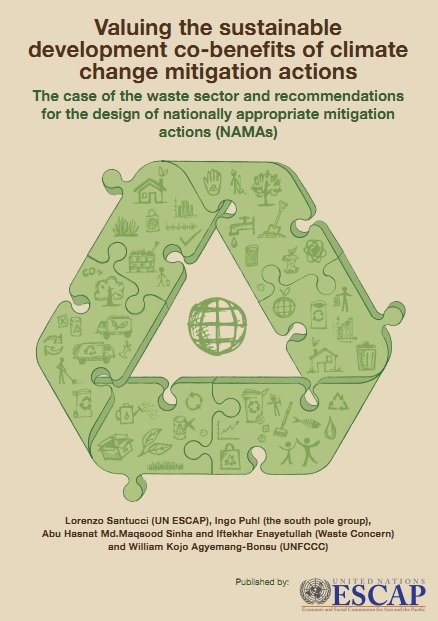Valuing the sustainable development co-benefits of climate change mitigation actions: the case of the waste sector and recommendations for the design of nationally appropriate mitigation actions (NAMAs)
Valuing the sustainable development co-benefits of climate change mitigation actions: the case of the waste sector and recommendations for the design of nationally appropriate mitigation actions (NAMAs)

The paper uses the case of the waste sector to illustrate the co-benefits associated with certain typologies of climate change mitigation projects, provide suggestions for their quantification and monetization, and draw recommendations for the design of Nationally Appropriate Mitigation Actions (NAMAs), including the role of government. The CDM has been a successful mechanism to promote GHG emission reductions in developing countries. However, the CDM has been particularly successful with projects with relatively high GHG emission reductions (such as large scale industrial projects), but did not work for projects with high “co-benefits” (such as small-scale community-based projects). One of the reasons for this is that CDM only monetizes GHG emission reductions. However, carbon is just one source of “value to society” that were able to monetize via carbon markets. Good projects have many other sources of value that should be “unlocked”, understood, recognized, quantified and, if possible, monetized. In the case of waste-to-resource strategies in selected countries in Asia-Pacific it was calculated that these co-benefits can be as high as US$ 184.21 per ton of CO2 eq reduced. NAMAs have the potential to be a meaningful and powerful driver of sustainable development in developing countries. But in order to do so, NAMAs should address the limitations of the CDM, and in particular provide a meaningful framework for the promotion of projects with a high degree of co-benefits. Valuing co-benefits and getting the incentives right ought to be a key component of such framework. A framework for quantifying and monetizing co-benefits would also hold considerable relevance in the context of both the UNFCCC and the global sustainability agenda, including the post-2015 development agenda.







